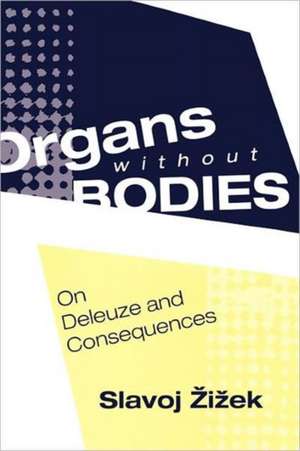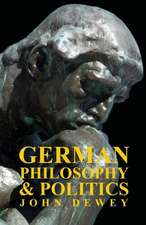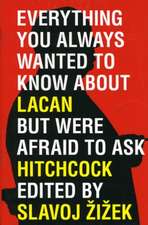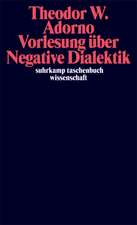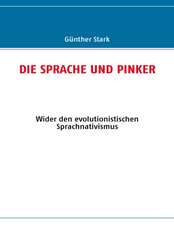Organs without Bodies: Deleuze and Consequences
Autor Slavoj Zizeken Limba Engleză Paperback – 24 oct 2003
| Toate formatele și edițiile | Preț | Express |
|---|---|---|
| Paperback (2) | 144.84 lei 3-5 săpt. | +13.10 lei 4-10 zile |
| Taylor & Francis – 26 apr 2012 | 144.84 lei 3-5 săpt. | +13.10 lei 4-10 zile |
| Taylor & Francis – 24 oct 2003 | 348.57 lei 6-8 săpt. | |
| Hardback (2) | 1000.27 lei 6-8 săpt. | |
| Taylor & Francis – 22 dec 2015 | 1000.27 lei 6-8 săpt. | |
| Taylor & Francis – 27 oct 2003 | 1110.77 lei 6-8 săpt. |
Preț: 348.57 lei
Nou
66.70€ • 69.83$ • 55.19£
Carte tipărită la comandă
Livrare economică 07-21 aprilie
Specificații
ISBN-10: 0415969212
Pagini: 230
Ilustrații: black & white illustrations
Dimensiuni: 152 x 229 x 14 mm
Greutate: 0.43 kg
Ediția:New.
Editura: Taylor & Francis
Colecția Routledge
Locul publicării:Oxford, United Kingdom
Notă biografică
Slavoj Zizek is a researcher at the University of Ljubljana. He teaches and lectures frequently in the United States and in Europe. Among his books are Enjoy Your Symptom!, Opera's Second Death, and On Belief, as published by Routledge.
Cuprins
Introduction
Deleuze
1. Deleuze
The Reality of the Virtual
Becoming versus History
"Becoming-Machine"
Un jour, peut-etre, le siecle sera empiriomoniste?
Quasi Cause
Is It Possible Not to Love Spinoza?
Kant, Hegel
Hegel 1: Taking Deleuze from Behind
Hegel 2: From Epistemology to Ontology.and back
Hegel 3: the Minimal Difference
The Torsion of Meaning
A Comic Hegelian Interlude: Dumb and Dumber
Toward an Oedipal Deleuze
Phallus
Fantasy
RIS
On the Permanent Actuality for Revolutionary Cultural Politics of President Mao Ze Dong's Slogan "Long Live the Great Proletarian Cultural Revolution"
Consequences
1. Science: Cognitivism with Freud
"Autopoiesis"
Memes, Memes Everywhere
Against Hyphen-Ethics
Cognitive Closure
"Little Jolts of Enjoyment"
2. Art: The Talking Heads
Kino-Eye
Hitchcock as Anti-Plato
The Cut of the Gaze
When the Fantasy Falls Apart
"I, the Truth, am Speaking"
Beyond Morality
3. Politics: The Ongoing "Soft Revolution"
A Yuppie Reading Deleuze
Micro-Fascisms
Netocracy
Blows against the Empire
The Liberal
How to Live with Catastrophes?
A Modest Proposal for an Act in the Middle East
Index
Recenzii
"With all his ususal humor and invention, Zizek-- the acknowledged master of the 180 degree turn -- here takes a trip into "enemy" territory to deliver Deleuze of a marvelously rebellious child, one that seriously challenges Deleuze's other progeny with a surprising but convincing bid for succession. Those who thought Deleuze's forward march into the future would follow a straight path are forced to rethink their stance. From now on all readings of Deleuze will have to take a detour through this important -- even necessary -- book." -- Joan Copjec, author of Imagine There's No Woman
"Even Mr. Zizek's most devoted fans sometimes wonder if he would do them a favor by not writing a book this month. Anyone feeling guilty for not yet having read Organs Without Bodies: On Deleuize and Consequences , published by Routledge in December, may instead want to consult Mr. Zizek's essay on Gilles Deleuze (the philospher of "schizoanalysis) in the winter issue of Critical Inquiry." -- Chronicle of Higher Education
"As a writer, Slavoj Zizek can translate difficult philosophical positions in a succinct way while maintaining its original force and insight....And so, Organs without Bodies is a provocative and important book for Deleuzians because it successfully opens a reading of Deleuze that is anti-conventional and moves against the current....What all this points to is how Zizek is an unconventional thinker with radical and originary insight. This makes Organs without Bodies a worthwhile and necessary read." --Robert Ramos, Metapsychology Online
Descriere
With a new introduction by the author
In this deliciously polemical work, a giant of cultural theory immerses himself in the ideas of a giant of French thought. In his inimical style, Zizek links Deleuze's work with both Oedipus and Hegel, figures from whom the French philosopher distanced himself. Zizek turns some Deleuzian concepts around in order to explore the 'organs without bodies' in such films as Fight Club and the works of Hitchcock. Finally, he attacks what he sees as the 'radical chic' Deleuzians, arguing that such projects turn Deleuze into an ideologist of today's 'digital capitalism'. With his brilliant energy and fearless argumentation, Zizek sets out to restore a truer, more radical Deleuze than the one we thought we knew.
